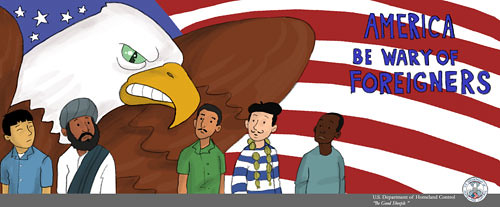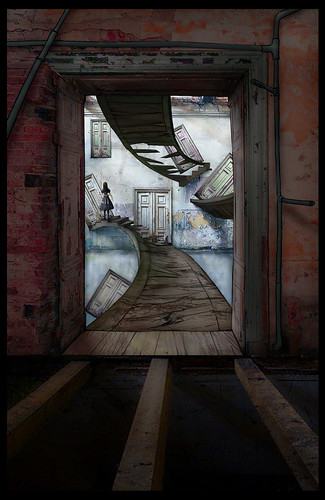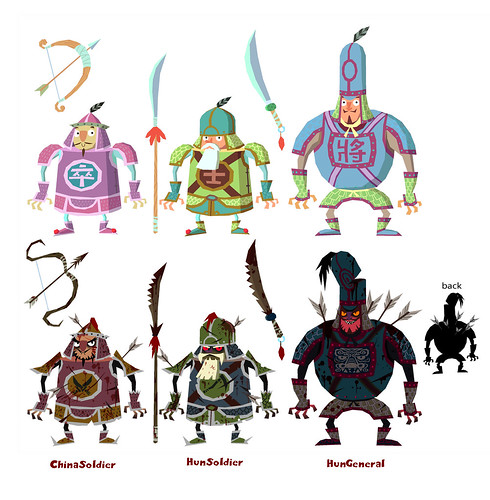
Foreigners Should be Afraid of Americans
This morning I stumbled upon an article, written by William J. Kole, an expatriate living outside the US:
VIENNA, Austria – She was a stranger, and she kissed me. Just for being an American.
It happened on the bus on my way to work Wednesday morning, a few hours after compatriots clamoring for change swept Barack Obama to his historic victory. I was on the phone, and the 20-something Austrian woman seated in front of me overheard me speaking English.
Without a word, she turned, pecked me on the cheek and stepped off at the next stop.
Nothing was said, but the message was clear: Today, we are all Americans.
For longtime U.S. expatriates like me — someone far more accustomed to being targeted over unpopular policies, for having my very Americanness publicly assailed — it feels like an extraordinary turnabout.
Like a long journey over a very bumpy road has abruptly come to an end.
And it’s not just me.
The article goes on to describe the uneasiness that has gone along with being an American abroad during the past 8 years. It’s a feeling I’ve become all too familiar with – and perhaps felt even more acutely because of my name.
Over the past decade I’ve traveled to distant part of the globe, seen exotic places, and met a carnival of interesting characters. These adventures (often something as mundane as a business trip to Tokyo) are punctuated frequently by the introduction of my name:
Me: “Nice to meet you, my name is American.”
Them: “Yes, I am Japanese. What is your name?”
Me: “American. My name is American.”
Them: “Yes, but what is your name…”
These roundabouts eventually resolve in “them” getting it, and me wondering just how many cumulative years I’ve spent sorting out that my name really is “American”. After so long it has become standard routine.
But one thing in this routine was never standard, always telling: The reaction after the realization that a person in the world might be named “American”. And this reaction was something that changed with time. Ten years ago there was joy, amusement, and even a degree of respect. “Wow, what a cool name. Your mother must have been very patriotic. You must love America.” And so forth. Then 9/11 and the Bush Doctrine. And people’s perception of America, and what it meant to be American turned very, very dark.
I had more than a few “I spit on your name” events, some people who simply asked, “Why would your mother do that to you?”, and plenty of discomfort and uncertainty about what to say. What do you say to a guy whose name is born from that place where everything is going so wrong? One girl commented, “That’s stupid.”
And I had to agree. I was one of those who had said, “If Bush is elected again I’ll leave the country” – and I did it. Ironically, it didn’t save me from the fact that things were going so wrong back home, it made it even more obvious. America’s image and the concept of Americans in general suffered severe damage in the minds of people in “the rest of the world” (which, btw happens to be most of the world).
Lately I’d been thinking, what to do if things don’t change back home? Change my name? My middle name is “James”, and that’s handy when I want to order pizza, but that’s not want I wanted – a name for ordering pizzas. I liked my “old” name, the one I had before Bush tanked its value.
So, you might say I had more than political interest in this election. More than a desire for “change”. We all want that. We all need that. No, I wanted my name back.
William Kole’s article continues…
Overnight, Americans did something their harshest critics in Europe have yet to do: elect a person of color as head of state and commander in chief. That gives U.S. citizens some bragging rights, even if a lot of us would just as soon eschew hubris and embrace humility.
I’m a marathon runner, and I have a red, white and blue singlet that I’ve seldom dared to wear on the Continent. Marathons are difficult enough without enduring catcalls and jeers from spectators.
But my best friend and training partner — who is French — just gave me his stamp of approval.
“Will you wear your Stars and Stripes shirt now? You’re allowed!” he told me.
At last. William can wear his Stars and Stripes again.
And so can I.
Awesome.



